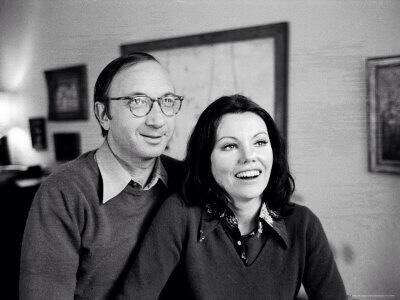I started these maunderings eight years ago. When I look at the numbers – over twenty thousand visitors, over forty thousand views – I have no idea what it all means. I don’t believe there are all that many of you who navigate here hoping for advice on writing musical comedies. The pictures I post are somewhat like the glue traps set for mice that capture a bunch of roaches. I’m told that Google Image Search is how many of you arrived here and I’m sorry I likened you to roaches.
Let me give you a piece of my mind. That’s the whole premise, isn’t it? Every week or so, I have some thought about musicals, and, in this share-happy era, I run to make it public. I try to self-impose a 1,000 word limit, but talking about Leonard Bernstein – come on! And some subjects are easier to discuss than others. Take music, for instance. It’s this amorphous thing, and words to describe it are insufficient. The readers may know a helluva lot about music theory, or nothing at all. Addressing you all, I step into a minefield in which I sound way too wonky to some, simplistic to others. And yet there are times when all I want to discuss are compositional issues.
We can widen the lens and talk about the structure of a musical.  But imagine I post about Guys and Dolls and the way its two romances play off each other, each providing respite before either couple wears out its welcome. That might be a helpful observation but it’s not as illuminating as actually seeing Guys and Dolls. Go see Guys and Dolls, people! It’s fun. I try to throw jokes into every post, but I’m not that entertaining.
But imagine I post about Guys and Dolls and the way its two romances play off each other, each providing respite before either couple wears out its welcome. That might be a helpful observation but it’s not as illuminating as actually seeing Guys and Dolls. Go see Guys and Dolls, people! It’s fun. I try to throw jokes into every post, but I’m not that entertaining.
And this is my trouble with so much that is written about musicals. Books on the subject tend to be dry, rendering a very lively art somehow lifeless. I don’t want to remove the bubbles from champagne.
So I’m more likely to discuss lyrics. Thanks to good schools, we all have some experience reading poems. But there’s a trap in this. Lyrics on the page look like poetry, but they’re a completely different thing. They exist with music, and the melody will determine which words get emphasized, and how much time the ear gets to take in every syllable. Writing songs, I’m always considering how the audience will apprehend the things I say. So I would never play with a pun that only works on paper, such as this paean to an old cow in pain:
There are bugs on her dugs.
There are flies in her eyes.
There’s a lump on her rump
Big enough to be a hump-
We’ve no time to sit and dither,
While her withers wither with her
Reading, you can get the triple entendre but in the theatre? Nobody laughs. And the effect on an audience in the theatre is all that matters.
Can you hear the people sing? And by people I mean the Steve-adores and by sing l mean complain. “How dare he criticize a Sondheim line? Everything the man wrote is absolute genius. I love that line.” And there’s where this blog alienates or even outrages readers. I happen to believe that Merrily We Roll Along is uncompelling, Anyone Can Whistle is incomprehensible and Into the Woods exhausting to sit through. Explaining why invariably brings out those who can’t deal with any criticism of their God.
Which is part of a broader problem: There are many musicals that people love that don’t work for me at all: Evita, Side Show, Parade, and the worst hit musical I’ve ever seen, Miss Saigon.  Funny thing here – autocorrect respelled the demon first lady of Buenos Aires as “Evian” and every time I see that water brand, I think, “It’s ‘naive’ backwards. Don’t people get it?” But I must own my snobbery. A lot of people love Evian – “one of the wettest we’ve ever seen, from the standpoint of water.” And a lot of people love Evita, but I can’t get past the false rhyming, the meaningless repetition of themes, the sense that I’ve seen it all before. I don’t want to declare Evita fans “naive” – or “Ative,” I guess – but if this blog is about anything, it’s about having high standards of craft. And shows that fall short – well, I’m compelled to call them out on that.
Funny thing here – autocorrect respelled the demon first lady of Buenos Aires as “Evian” and every time I see that water brand, I think, “It’s ‘naive’ backwards. Don’t people get it?” But I must own my snobbery. A lot of people love Evian – “one of the wettest we’ve ever seen, from the standpoint of water.” And a lot of people love Evita, but I can’t get past the false rhyming, the meaningless repetition of themes, the sense that I’ve seen it all before. I don’t want to declare Evita fans “naive” – or “Ative,” I guess – but if this blog is about anything, it’s about having high standards of craft. And shows that fall short – well, I’m compelled to call them out on that.
And so, when you meander through these 430 maunderings, you come across some opinions that you might differ with, or that might differ with the prevailing orthodoxy. Good. I expect you come here for idiosyncratic opinions, be they catty or Katzy. I see myself as engaged in a passionate argument, my quill tearing through parchment like Hamilton’s, sizing up musical theatre entertainments; some succeed, some don’t. You don’t have to agree with me, but I hope I’m raising a few issues that get you to look at musicals in ways you might otherwise never consider.
This little blog-aversary acknowledgement is sandwiched between a lot of retrospectives – the centenaries of three masters of the form, my wife’s birthday, our wedding anniversary. And that seems an unhealthy amount of looking backwards. Truth is, I’ve been writing a lot of songs recently, more slowly recording them, and am absolutely obsessed with a current show tune, Answer Me. I really think I’m looking in front of me, even if this blog says otherwise. So, you see, even I find stuff to argue with here.



 Posted by Noel Katz
Posted by Noel Katz 



